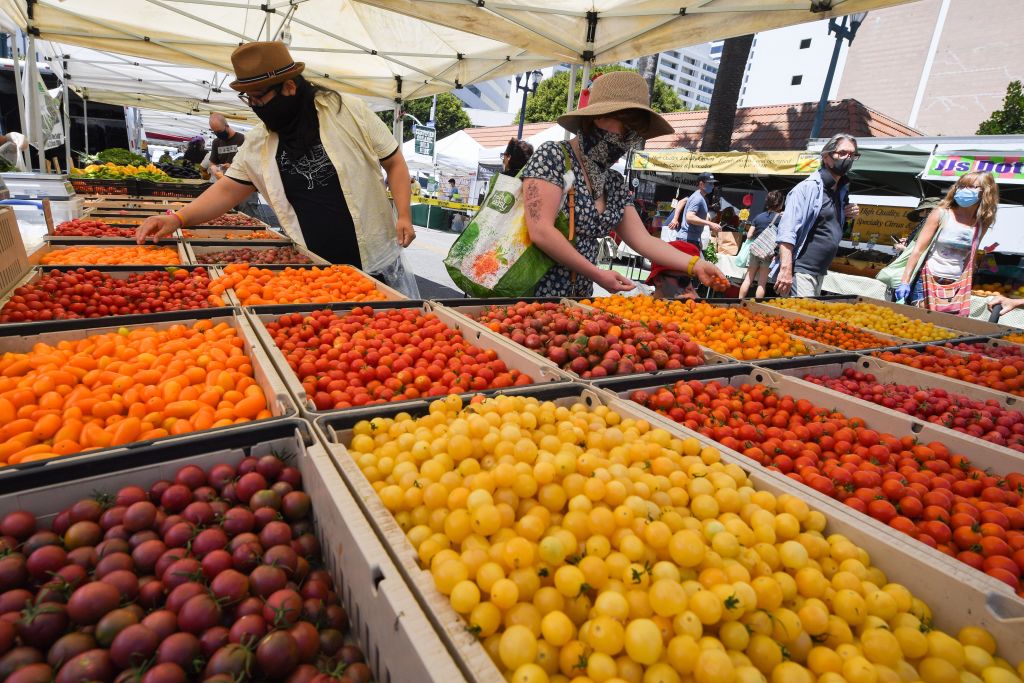Can the coronavirus survive in frozen food? 0:53
(CNN) –– Health experts indicate that there is no evidence that the coronavirus can be transmitted through food.
You may have seen reports this week that Chinese authorities reported a sample from a batch of frozen chicken wings imported from Brazil that tested positive for coronavirus.
But you don't need to panic.
- LOOK: Can the coronavirus be in the supermarket food packages?
Yes, the virus was detected in said product in the Chinese city of Shenzhen, according to a municipal government statement. Officials did not name the brand to which the wings belonged.
So far, tests of people who may have had contact with the chicken wings have come back negative, according to the statement, and products of the same brand that have already been sold are being traced. Meanwhile, an expert pointed out that tests on the chicken could have detected genetic material from dead coronavirus, which can cause false positives.
Here's the bottom line: Doctors and health experts have repeatedly pointed out that Covid-19 is not likely to be transmitted through food.
How to properly clean your food 2:42Dr. Ian Williams, chief of the Outbreak Prevention and Response Branch at the U.S. Centers for Disease Control and Prevention (CDC), who researches foodborne and foodborne illnesses. water, previously explained that there was no evidence that COVID-19 is "spread by food or food service."
"This (the virus) is really respiratory, from person to person," Williams insisted. "At this point, there is no evidence that really points to food (or) food service as drivers of the epidemic."
Covid-19 is transmitted largely through respiratory droplets, when an infected person coughs, sneezes or speaks within 2 meters of someone else, according to the CDC. The best way to prevent the spread is with social distancing, wearing masks, good hand washing, and covering when coughing or sneezing.
- LEE: Are food shipments at home safe during the coronavirus pandemic? Yes, experts say
Williams' point was recently reiterated by the US Food and Drug Administration (FDA) and the US Department of Agriculture, which reported in a joint statement last June that "there is no evidence." that people can contract the virus through food or food packaging.
Now, according to the CDC, you can catch COVID-19 by touching a contaminated surface - including food packaging - and then wearing it on your face. But, you can reduce the risk by washing your hands with soap and water for at least 20 seconds after handling food containers.
Virus unlikely to persist after shipments, WHO says
International experts seem to agree.
"People should not fear food, or food packaging, or food processing or delivery," said Dr. Michael Ryan, Executive Director of the World Health Organization's Health Emergencies Program on Thursday. .
"I would hate to think that we give the impression that there is a problem with our food or that there is a problem with our food chains," he said. "There is no evidence that food or the food chain is involved in the transmission of this virus, and people should feel comfortable and safe," he said.
- LOOK: Does the coronavirus die in food if I heat it in the microwave?
The WHO had previously noted that it is "highly unlikely that people can contract COVID-19 through food or food packaging," and reiterated that the virus is a respiratory disease that is transmitted mainly from person to person.
Additionally, the coronavirus is also unlikely to spread through products manufactured elsewhere, according to the WHO.
“Although the new coronavirus can remain on surfaces for a few hours or up to several days (depending on the type of surface), it is very unlikely that the virus will persist on a surface after it has been moved, transported and exposed to different conditions and temperatures », Clarified the WHO.
If you are still worried, know that your body has another line of defense.
Even if the coronavirus got into your food, stomach acid would kill it, explained Dr. Angela Rasmussen, a virologist at Columbia University.
"When you eat any type of food, whether hot or cold, that food will go directly to the stomach, where there is an environment of high acidity and low pH that will inactivate the virus," he said.
- READ: What you should buy to stay healthy and other rules for coronavirus quarantine
In the case of chicken wings in Shenzhen, David Hui Shu-cheong, a respiratory medicine expert at the University of Hong Kong, said that they were likely contaminated during packaging. But that does not necessarily mean that they are infectious.
The tests could be picking up the RNA, the genetic material, from the dead coronavirus, he said, which is known to cause false positive results in patients who have recovered from covid-19.
Nectar Gan, Mallory Simon, Sandee Lamotte and Holly Yan, all from CNN, contributed to this report.
Food, food, contagiocovid-19, pandemic











